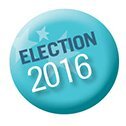Denise Juneau, the Montana superintendent of public instruction, is running for her state’s only seat in the U.S. House of Representatives as a Democrat—but she doesn’t think she can get there by riding President Barack Obama’s coattails. And she’s trying to show voters she has the record to prove it.
Juneau is running against incumbent Rep. Ryan Zinke, a Republican, former state senator, and a one-time Navy SEAL. He was first elected to Montana’s at-large seat in the House in 2014. She is an underdog in the race against Zinke, who has outraised her by a significant margin, and the seat is rated as a “likely” win for Zinke by the Cook Political Report, a political handicapping and analysis service.
However, if she were to beat Zinke, Juneau would be the first American Indian woman elected to Congress; she already holds the distinction of being the first such person in the country to hold any statewide office. Juneau is a member of the Mandan Hidatsa tribes and a descendant of members of the Blackfeet tribe.
The national teachers’ unions are big fans of Juneau. In fact, she’s even rumored to be a possible candidate for education secretary under Hillary Clinton—also a union favorite—if the latter wins the presidency.

“I’m always so proud of the good work that’s going on in our schools, seeing good teachers teaching, seeing students learning,” Juneau said during her opening remarks in a debate here at Great Falls College Montana State University Wednesday evening.
And she pitched Graduation Matters Montana, which she launched nearly seven years ago—Juneau was elected in 2008 and re-elected in 2012—to improve graduation rates in state. Noting that the state’s graduation rate increased from 81 percent in 2009-10 to 86 percent for the 2014-15 school year, a record high in Montana, she told the audience here the increase “boosts our economy by millions every year.” (Her campaign says that spike equates to an additional $6 million in state economic activity.)
When you look at Juneau’s positions on hot-button education issues of various prominence, they are hard to classify easily and briefly—more on that in a moment. But in a response to a candidate questionnaire from the American Association of University Women of Montana that were distributed before the debate, she said the following:
- She supports “increasing resources to vigorously enforce Title IX and other civil rights laws pertaining to education.” Zinke did not respond.
- She opposes “using taxpayer dollars to fund private or religious schools.” Zinke said he supports this.
- She supports “passing a federal law to address bullying and harassment against all students, including LGBT and gender-nonconforming students.” Zinke did not respond.
Juneau’s Opposition to Some Obama Policies
An underdog in a state that typically votes for Republican presidential candidates, Juneau has made it clear to voters that she’s opposed President Barack Obama’s administration on several policy key issues and has often been skeptical of federal power. Indeed, in an interview with Education Week before the debate, Juneau said bluntly, “That is the message basically.”
And when we asked her to rate Obama’s education policy on a scale of 1 to 10, she only rates the administration’s approach a 3 when it comes to how well it has worked for Montana. She highlights the state’s Schools of Promise program, in which the state eschewed the turnaround strategies included in the administration’s School Improvement Grant program in favor of other methods.
Under Juneau’s tenure as state chief, the state declined to seek a waiver from the No Child Left Behind Act, and she’s a big critic of evaluating teachers through test scores. She’s also critical of the federal Bureau of Indian Education. On the other hand, she is a big fan of the federal preschool grant Montana received. And in the political realm, she did speak at the 2012 Democratic National Convention.
During the debate, Juneau starts out by describing her life’s arc as “Head Start to Harvard.” (Juneau has a master’s degree in education from Harvard University, and started out in education as a teacher’s aide in Browning, Mont.) She also makes a point of pointing to the work of local communities in education, saying that the state was just a “small part” of the Great Falls school district’s work with Graduation Matters, and congratulating the city on passing a new bond issues for schools here yesterday.
Education isn’t the only issue where Juneau parts ways with many Democrats. She calls herself “a strong supporter of the second amendment.” On energy policy, a major political issue here, she says, “coal is not going away,” although she highlights the work being done to boost solar energy.
When she’s told at the end of the debate by Libertarian Party candidate Rick Breckenridge that she agrees with him on several issues, she doesn’t argue. “I think I might have a little bit of a libertarian streak,” she said.
We’ll have more about Juneau’s campaign in the near future.
